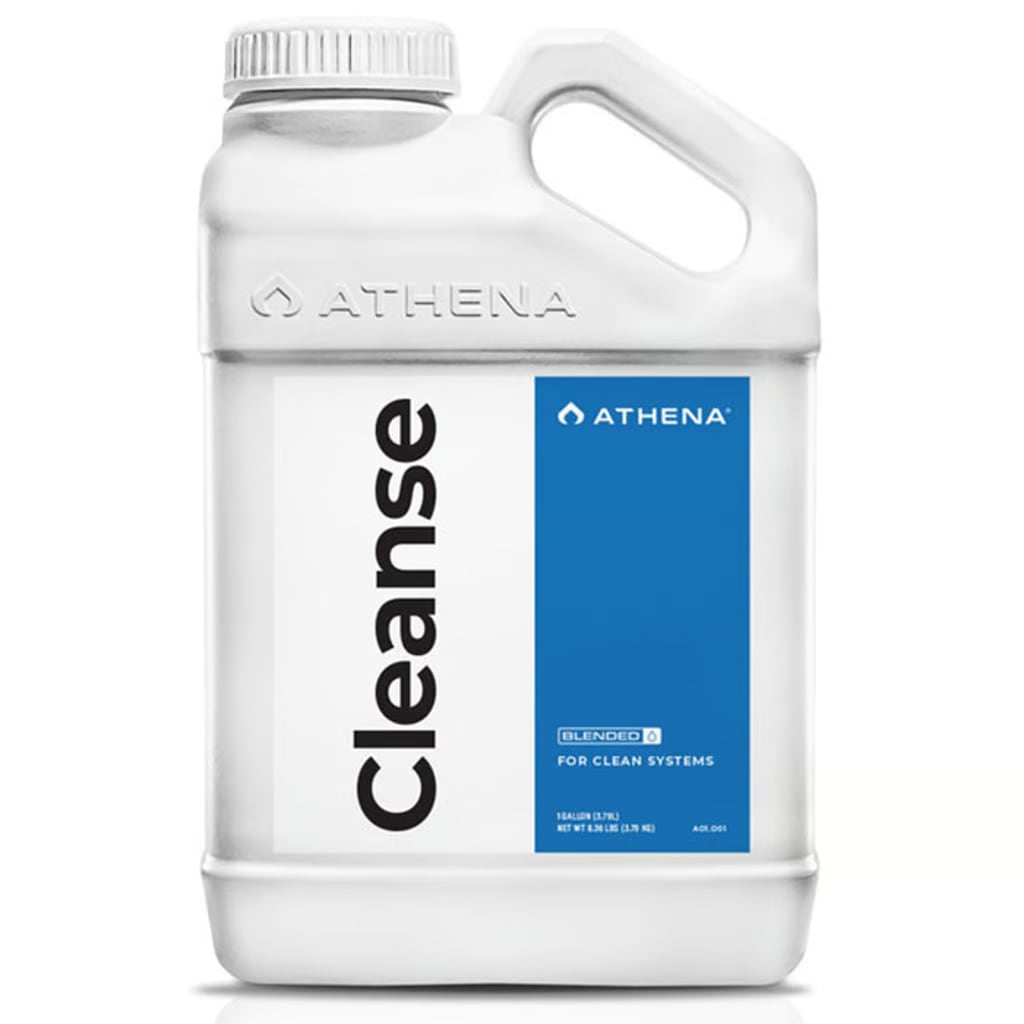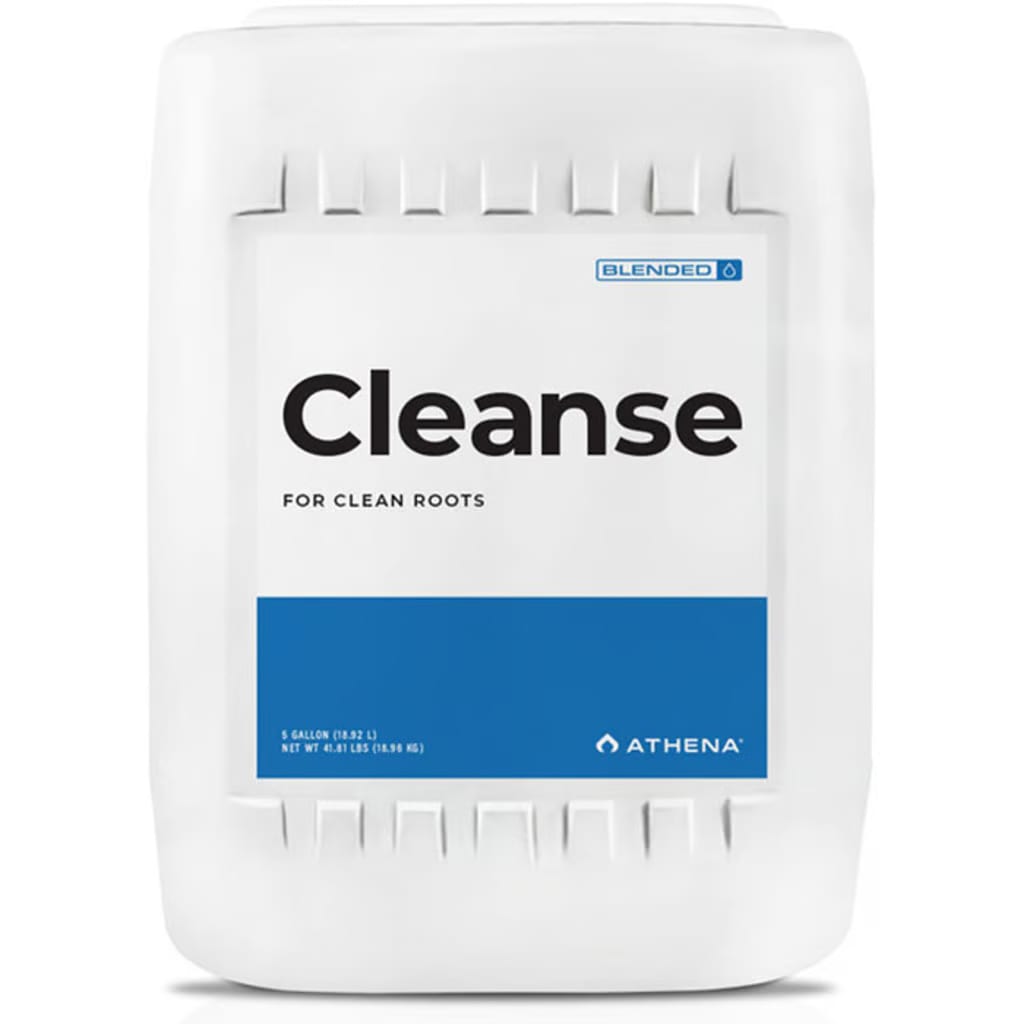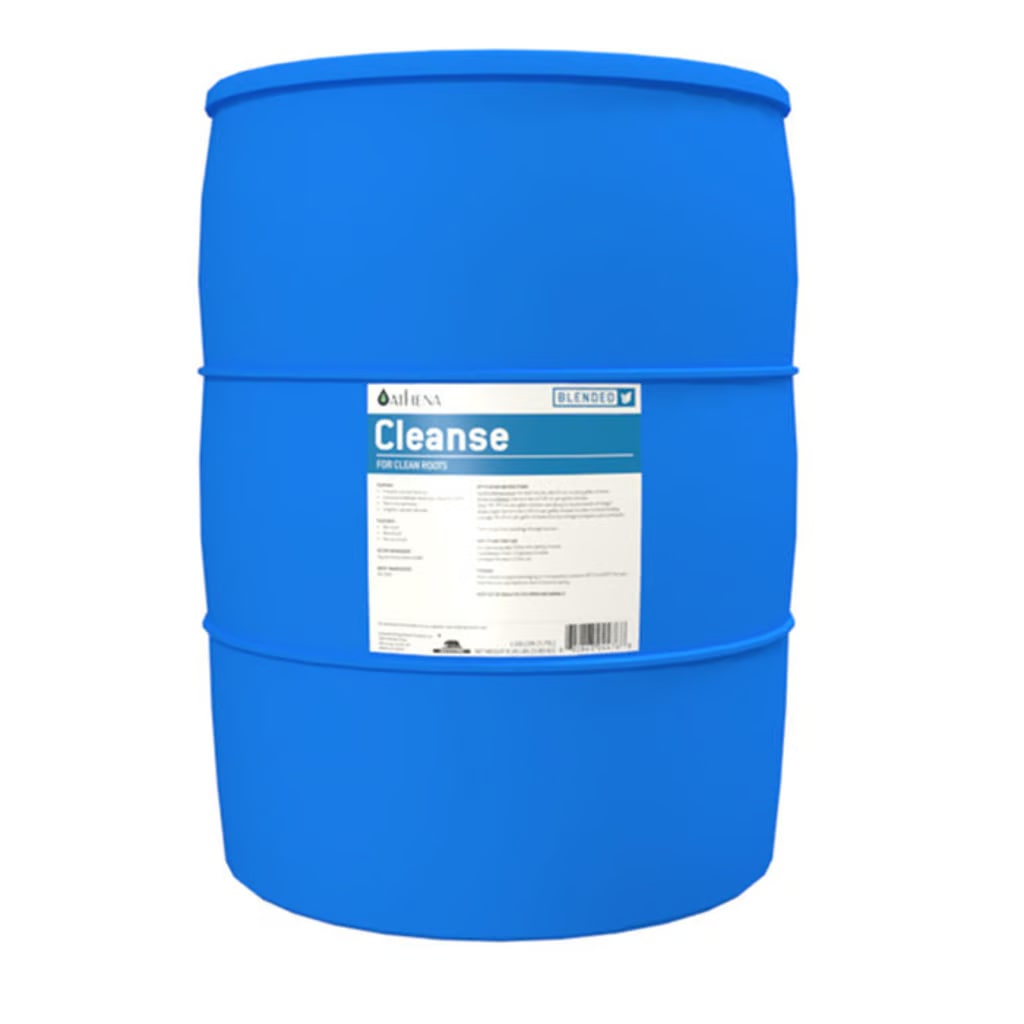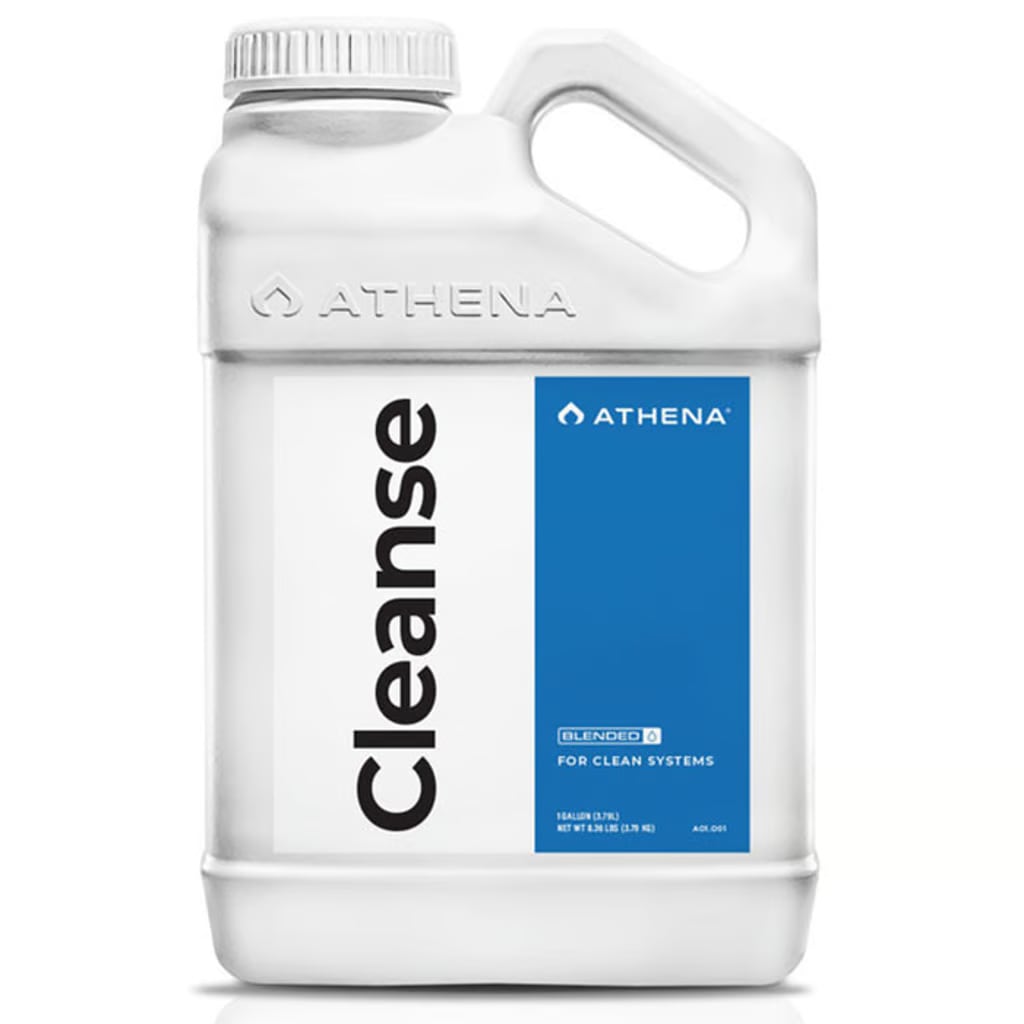Athena
Athena Blended Cleanse
Athena Blended Cleanse
38 in stock
Couldn't load pickup availability
Payment options
- Fast Delivery
- Easy Returns
- Secure Checkout
Description
Description
Athena Cleanse is made from the ideal (and safe) root zone optimizing agents-Hypochlorous acid. This safe and mild acid is derived from salt and a proprietary electrochemical treatment process. The result is a unique, plant-safe chemical with powerful oxidative properties to keep your root zone clean and free of unwanted organisms and buildup. These special properties improve both mineral and oxygen availability in the growing media.
Key Features
Non-toxic - Safe to use on plants in and stage of growth
Neutral pH - Won't affect solution stability
Increases Oxidation-Reduction Potential (ORP)
Breaks down scale - Keeps irrigation systems in pristine condition
Reduces biofilm - Keep lines clear of dangerous organic material
Very low TDS - Doesn't throw off mineral balance
Promotes robust root growth
Effective as a final flush to clean growing media
Keeps irrigation system cleaner and running efficiently longer
Reduces mineral buildup in media and lines
Increases oxygen and nutrient availability in growing media
How To Use
System Maintenance:
Irrigation systems that are regularly maintained with Athena Cleanse treatment will last longer, and run more optimally throughout. This is because Cleanse helps break down scale, mineral buildup, and other organic matter that has been lodged in the system.
Regular Use: Use a dilute mixture of 2-5 mL per gallon water for regular maintenance.
Severe Conditions:
Increase rate to 5-10 mL per gallon water for combatting severe reservoir and growing media conditions.
Cuttings/Clones:
Athena Cleanse a must for all cloning machines and fresh cuttings. Dip fresh cuttings in a solution of Cleanse (10 mL per gallon) to improve cell health and increase immunity. Seedlings and cuttings treated with Cleanse have more vigor and are more likely to grow into robust plants. Roots of plants treated with Cleanse will be bright white and bursting with tiny feeder root hairs.
RDWC and Other Recirculating Hydroponics Systems:
Any recirculating or deep water culture (DWC) irrigation system should use Athena Cleanse to increase oxygen and nutrient availability. Irrigation water treated with Cleanse has a reduced risk of developing problems that are often associated with overwatering and insufficient oxygen levels, such as anaerobic microbial growth and biofilm buildup.
Using Cleanse in a recirculating or DWC system helps break down materials with lower solubility ratings, such as mineral complexes that are no longer available to plants. Mineral buildup and lockout is a major cause of deficiencies and plant health problems-solve these issues with Athena Cleanse.
Media/System Flush:
Mix Athena Cleanse at a rate of 5-10 mL/ gallon of water during the final flush stage to help reduce residual mineral buildup in the growing media and plant tissues. Reducing excess minerals in the final stage of life encourages the plant to produce more oils, aromas, and flavors associated with quality end product.
This procedure may be used at any time during vegetative or flowering phases if the growing media or irrigation system develops mineral imbalance or unwanted buildup.
Foliar Applications:
Mix 375 mL Cleanse per gallon water and spray evenly. Test on a small area first to ensure no damage.
Surface Treatment/Cleaning:
Spraying cultivation surfaces, work areas and irrigation equipment with a dilute solution of Athena Cleanse (375 mL per gallon) helps maintain a clean and trouble-free environment without toxic and dangerous chemicals. Maintain operational excellent and extend equipment life, such as irrigation system filters, by running treated water through the system regularly.
Share



INFORMATION QUESTIONS
FREQUENTLY ASKED QUESTIONS
What is Hydroponics?
Hydroponics is the science of growing plants without soil. The plants thrive on the nutrient-water solution alone. The growing medium merely acts as a support for the plants and their root systems while the solution passes freely. The growing medium, if any, is totally inert.
What types of plants grow best hydroponically?
Anything can be grown hydroponically, but some plants prove to be more space efficient. Some plants we suggest are tomatoes, sweet peppers, hot chilies, lettuce, spinach, squash, cucumbers, broccoli, beans, snow peas, herbs and flowers of all types.
Can you REALLY get better yields/quicker growth?
Absolutely. The plants, when receiving everything they need, tend to be healthier, faster growing and generally more productive. You can expect 30% faster growth with many crops.
What are the watering cycle timelines hydroponic systems?
Once the reservoir is filled with nutrients, it is time to put your hydro system to work! The ease of hydroponics is automation – automation is achieved by putting the pump on a timer according to your watering needs. The watering cycle depends on growth stage, growing medium and hydroponic system. In an ebb and flow or drip system with rockwool as the medium, seedlings, clones and plants in the early vegetative stage require watering only once a day for 15-30 minutes (twice a day for higher temps). Mature, flowering and fruiting plants require a heavier feed and can be fed once a day for 30 minutes (twice a day for higher temps). Typically soiless mixes and coco fiber can be watered for about 15 minutes twice a day, and can be adjusted for heavier feeding during the flowering and fruiting stage or higher temps. ViaStone, Hydroton, Grow Rocks, and Silicate mediums need to be watered more frequently – a constant drip for drip systems, and about 15-30 minutes every 3 hours for ebb and flow systems and can be adjusted for heavier feeding during the flowering and fruiting stage or higher temps. Aeroponic systems require frequent watering cycles; 30-60 seconds every few minutes or a constant spray.
What do I need to test pH? How do I test pH?
pH has a range from 0 (acidic) – 14 (alkaline), with 7 being neutral. A proper hydroponic pH range is between 5.5 to 6.2 for most hydroponic crops. For specific crop pH, check out our Plant Guide. pH must remain within the proper range for good plant health, disease resistance, and proper nutrient uptake. pH is maintained by adding pH Up and pH Down to the nutrient solution. For more information, see the Testssection of our site.
How will the flavor compare to my outdoor grown, organic produce?
The taste may be even better! This is simply due to the fact that the hydroponically grown plants are getting everything they need, when they need it. Don’t be fooled by “hot house” produce grown commercially. The grower’s primary concern is shipability and storage, not flavor. When you grow your own vegetables at home, you can expect nothing less than excellent results. Plus, hydroponically grown produce has the added benefit of a longer shelf life.

